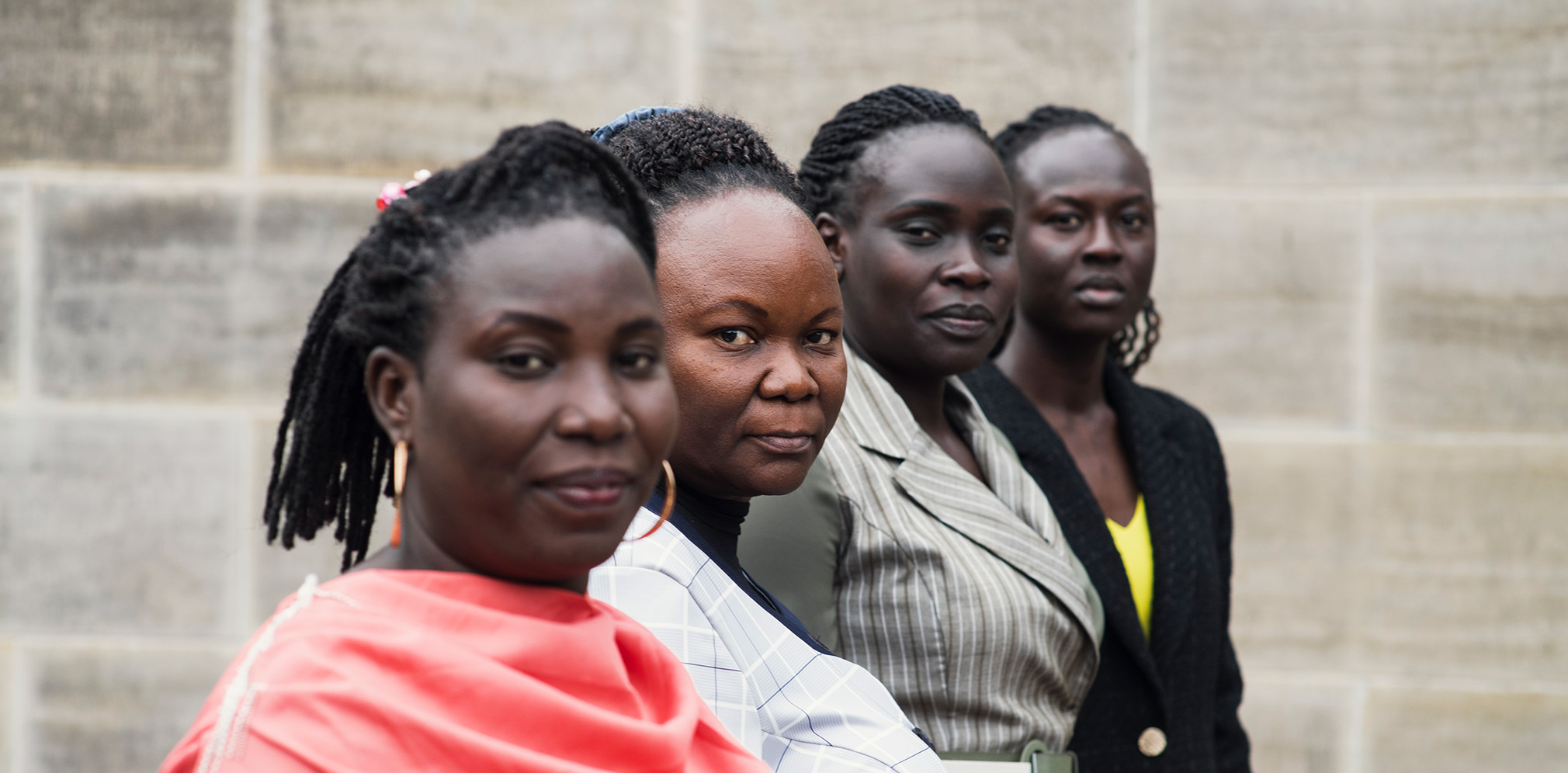From International Day Against Violence Against Women (November 25) to International Human Rights Day (December 10), the United Nations’ global Orange the World-campaign draws attention to gender-based violence during these 16 Days of Action. Under the Leaders of Peace-program, PAX works together with our local partners against gender-based violence in South Sudan. We spoke to our South Sudanese partners Gloria, Martha, Martina and Vicky about their fight for a gender-equal society.
Gloria
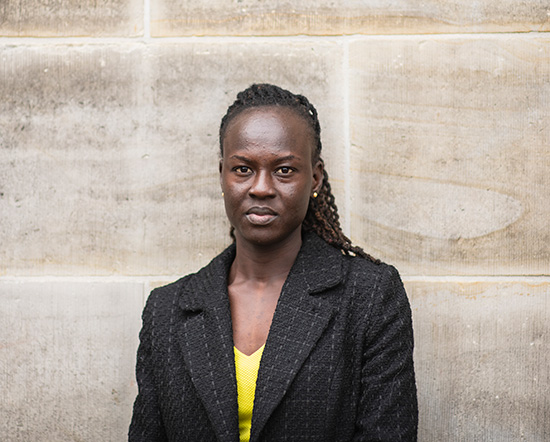
Gloria is a project officer of the South Democratic Engagement, Monitoring and Observation Program (SSuDEMOP), where she works to make sure that women can meaningfully contribute to the reform agenda in South Sudan.
“The prevalence of gender-based violence (GBV) in South Sudan is quite alarming. There is an increase in reported cases of forced marriage, rape and femicide. In a society that is patriarchal with no respect to women’s rights, women become most vulnerable. Although there is a growing sense of awareness among women, when they start rejecting cultural practices that harm their well-being, this often leads to more violence.
As a human and women’s rights activist, my work entails advocacy on issues that affect women and girls. For example, I contribute to the formulation of family law. If this bill is passedinto law, it will be a major milestone for female emancipation.
Engaging with policymakers is vital, as they are allies in achieving gender equality. However, the lack of political will to make policy changes at times becomes very frustrating. For example, women haven’t been participating in conversations about policies for a long time. Therefore, there’s a need to change the narrative: women should also be included in decision-making processes. If women are not at the table to discuss what women want, the policies will not reflect their interests. And for that reason, I keep on pushing for a society that works for ALL genders.”
Martha
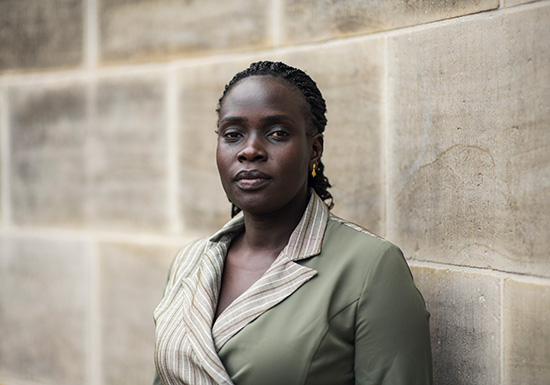
Martha is the Secretary General of the Women Advocate Association in South Sudan (WASS), an association of female lawyers that provides legal support to vulnerable groups in society, including women.
“People often think of gender-based violence (GBV) as sexual or physical violence. Psychological violence and the denial of resources are often overlooked. In South Sudan, which forms of GBV are prevalent variates per region.
GBV is rooted in the patriarchal structure of the family, in which the man is the head of the household. However, men can also experience GBV! For example, young boys, just like young girls, become victims of child marriage. GBV is a social problem and affects everyone, regardless of gender. That is why we need to intervene from different angles: raise awareness, provide legal support and lobby for change in legislations.
Most people in South Sudan are traumatized because of the conflict. Trauma affects your behavior. This differs per gender, as people have experienced the conflict differently. Men tend to become aggressive towards their wives and children.
As a legal professional association, we provide legal assistance to vulnerable groups, such as women. We also advocate for changes in legislation, such as the anti-GBV law and family law. We need a holistic legal framework to effectively combat GBV. However, it is quite complicated to do this work within a patriarchal system, in which fighting GBV is not seen as a priority.”
Martina
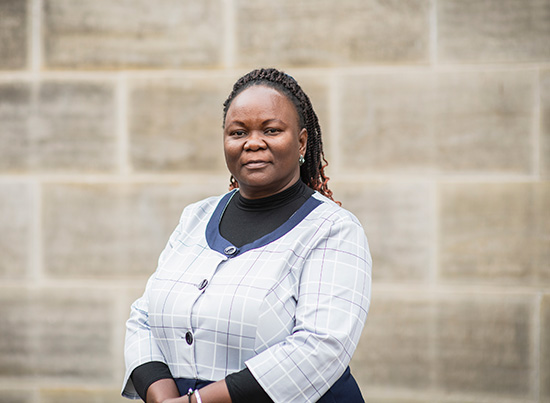
Martina is a project officer at PAX in South Sudan. She is in touch with female activist groups who advocate to address gender-based violence (GBV) every day.
“In South Sudan, we have high issues on gender equality at all levels – political, economic, social and religious. This gap relates back to our education system: boys are favored as the future head of the family, while girls are being prepared for marriage.
I work with female parliamentarians and women-led organizations. I train them in skills in lobbying, public speaking, leadership and providing psychosocial support. They have the will to implement legislation against GBV, though there is also a need for psychosocial support for women working at a high level. They too have been traumatized by the conflict.
Grassroots organizations can play an important role in combating GBV as well, as they know their communities best. But there is not much protection and freedom for female activists.
Sometimes it’s hard to work with women while being unable to provide a solution to their problems. They often lack independence to make their own choices and access to psychosocial support to deal with their trauma. However, I try to support them.”
Vicky
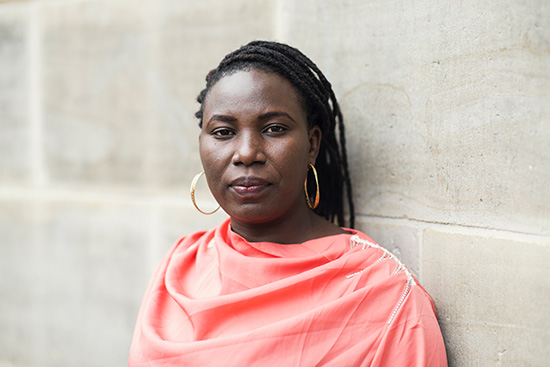
Vicky supports South Sudanese partners in their advocacy, peace activities and building a network of peace activists.
“Gender Based Violence (GBV) in South Sudan is nothing new, as it has always been driven by our patriarchal society. Culturally, women are not able to speak on their rights or sensitive topics that affect them, such as sexual assault and divorce. The culture of marriage includes that men are forced to pay a high amount of cows as a dowry payment. As a result, a woman is considered property, which puts her life at much greater risk to all forms of violence.
All of this can be changed if women are empowered to speak on their behalf and on the behalf of other women, which is their right. In addition, men need to understand what violence against women entails and what norms are harmful to women.
When it comes to GBV, responding to the needs of victims should be our first priority. In addition, the government should establish empowerment programs to strengthen the self-esteem of women to stand against harmful norms and taboos that might put women at higher risk of violence. Then we would not only give them justice, but also promote gender equality in the community.”
About the Leaders of Peace program
The Leaders of Peace program (2021-2025) focuses on a gender-equal, inclusive society. PAX works on the program together with Plan International, HealthNet TPO and the South Sudanese NGOs EVE and AMA. The Ministry of Foreign Affairs is a strategic partner. We work on improvement of the protection of women and girls against gender-based violence, improvement of facilities for victims and a stronger justice system. This is how we build a society in which girls and women feel safe. We also work to ensure that women play an important role in peace processes, so that sustainable peace in South Sudan is made possible.
Read more about the Leaders of Peace program.

